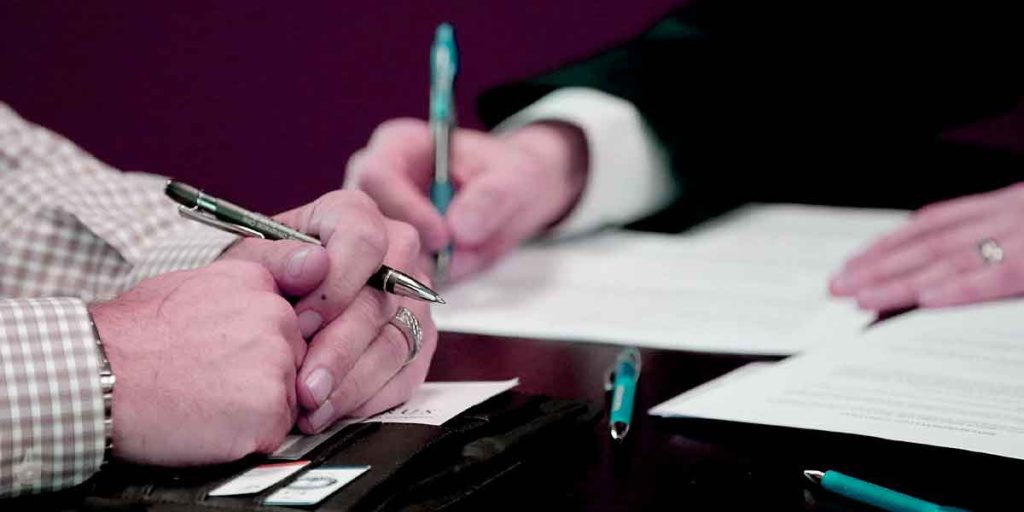When a person dies, a probate court distributes his assets and debts according to the terms of his will. If a deceased person does not have a will, state inheritance laws dictate how his assets and debts are transferred. To ensure that your assets and debts are distributed in the way that you would like them to be, and not according to the distribution scheme set forth by your state, you will need to create a valid will. The requirements for creating a valid will vary from state to state and must be closely followed to guarantee that your property is transferred in the way that you intended.
What is a Will
It is a requirement of the wills probate process that a search for a wills notice be completed. A wills notice identifies that a will has been registered and describes the person who has made the will, where the will is located, and the date of the will. Anyone is eligible to conduct a search of wills notice of a deceased person. To be eligible to conduct a search of wills notice for a person who is living, you must be the person themselves or a lawyer. The BC Archives holds wills probated in British Columbia between 1861 and 1981. The wills indexes and the wills on microfilm are self serve and open for access in the reference room. The 1981 wills are in hardcopy and stored off-site.
Steps to creat a will
1. Introduction
Title your document “Last Will and Testament,” so there is no misunderstanding regarding your intent as “testator,” the person writing the will. State your full name, address, date of birth, and Social Security number, and also write that you are over the age of 18, of sound mind, and not creating the will under duress. Also be clear that this will revokes any previous will or codicil.
2. Executor
Choose your executor, the person who will carry out your wishes as expressed in the will. This can be your spouse, a relative, or even a friend-so long as it is someone you trust and who is willing to accept the responsibility. Also name an alternate executor, in case your first choice can’t serve, for whatever reason.
3. Beneficiaries
Your beneficiaries or heirs are those who will inherit your property. Clearly identify them in your will. Usually a testator’s spouse and closest relatives are the main beneficiaries, but you can leave your assets to whomever you like, including charitable organizations with whom you’ve had a strong bond. If you intend to leave a typical beneficiary, for example, a child, out of your will, you may want to explain why you’re doing so to avoid potential challenges to the will later. Some states don’t allow the disinheritance of a spouse, though, so be careful there.
4. Property
Your will is intended to distribute your “estate” to your beneficiaries, and your estate includes all of your real and personal property. “Real property” is land and buildings, while “personal property” is all the other kinds of belongings-from vehicles and family heirlooms, to bank accounts and stocks and bonds. The easiest way to start this step is to make a list of everything you own. You can only bequeath assets owned solely by you, although, in some instances, you may pass your interest in a property to an heir. In your will, you may choose to leave percentages of your estate to heirs (50 percent to spouse, 50 percent to children, divided equally) and/or to leave specific items to specific individuals. Any assets that include named beneficiaries within the instruments-life insurance policies and pensions.
5. Guardian
If you have minor or dependent children, name a guardian to take over the responsibility of raising them until they reach the age of 18. Usually the other parent assumes guardianship, but specifying your preference in the case that both parents are deceased could avoid a court-appointed guardian later. Discuss all of this with your chosen guardian to make sure they would accept the responsibility.
6. Execution
“Executing” a will just means signing it and making it legally valid. State laws vary regarding requirements, but generally at least two witnesses must sign the will. In some states, witnesses must be disinterested parties-not beneficiaries and/or not an attorney representing you.
7. Storage
Once you have executed your will, store the document in a safe place and let your executor know where to find it. Revisit your will periodically to be sure it still accurately represents your wishes. Once a year around your birthday is a good time to take account of any births, deaths, marriages, divorces, and other life events that may have affected your will’s provisions. By creating a will and doing this yearly maintenance, you’ll be reassuring yourself that your loved ones will be taken care of, and that your wishes will be followed after you’re gone, which, after all, are probably two of your biggest reasons for writing the will in the first place.
Get help
If you would like to learn more about wills, call us today, any one of our estate planning attorneys would be happy to assist you.









